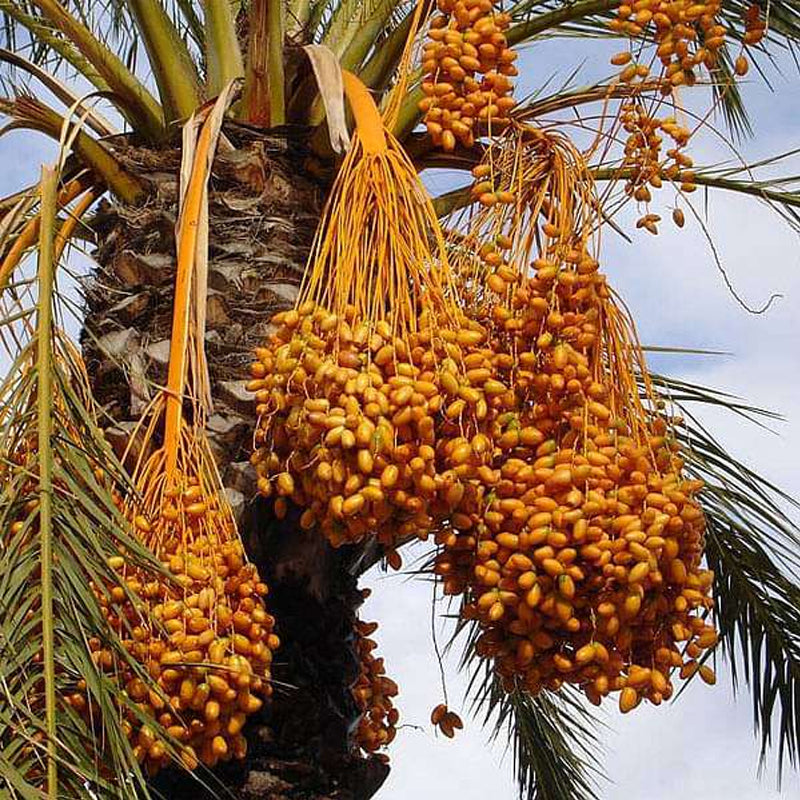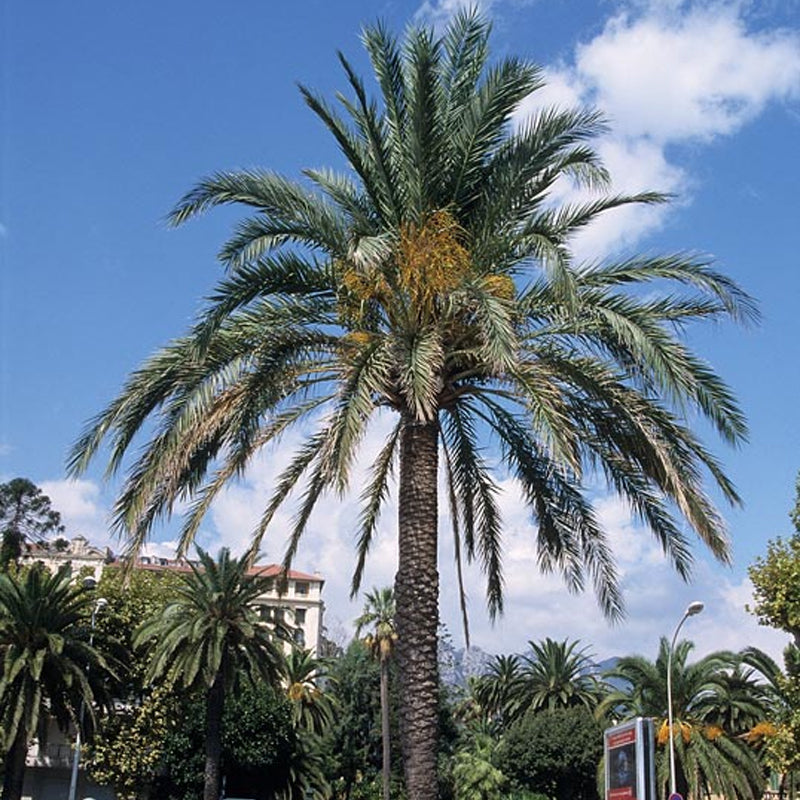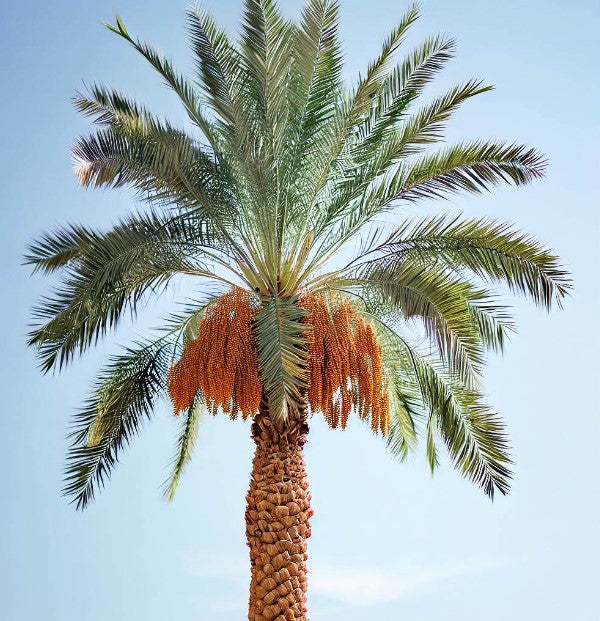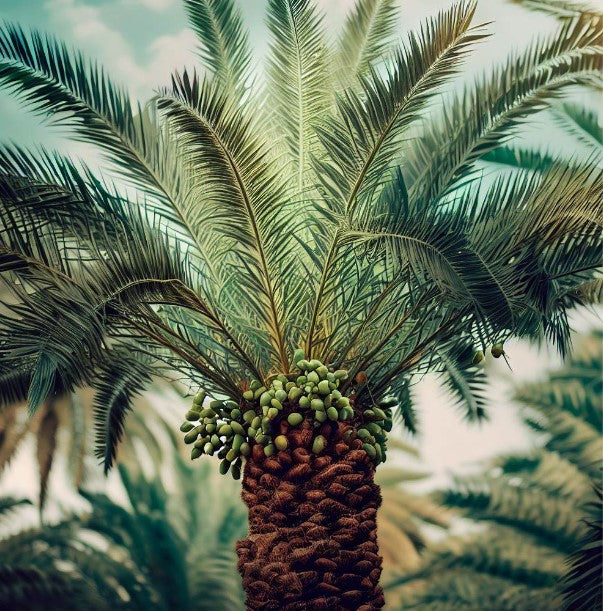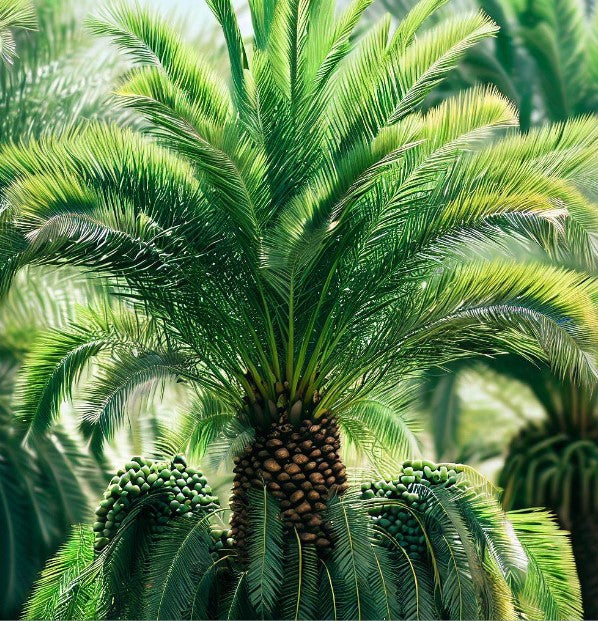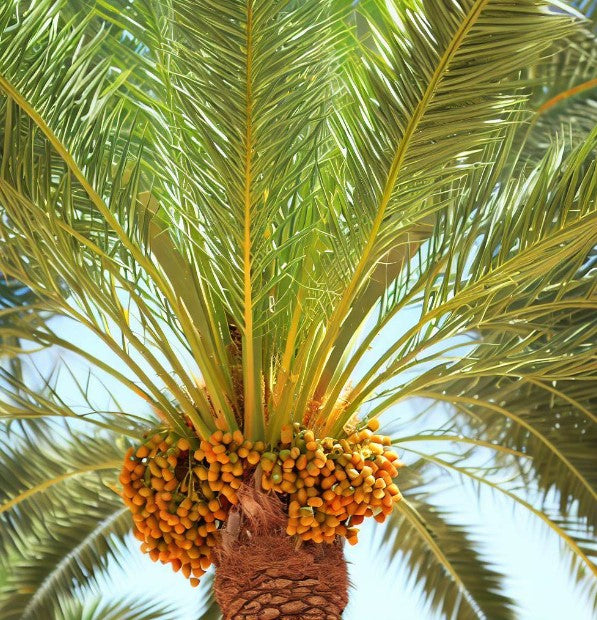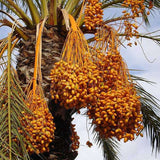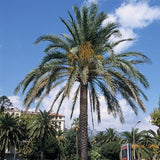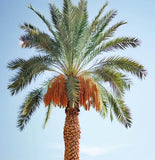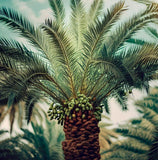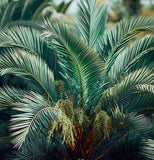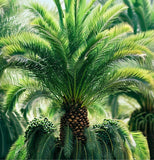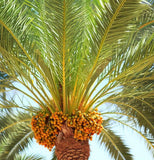Phoenix dactylifera (Date Palm Tree)
Phoenix dactylifera (Date Palm Tree) is a species of palm tree that is widely cultivated for its sweet and nutritious fruit called dates. Here are some key features and characteristics of the Date Palm:
Appearance: The Date Palm is a tall and graceful tree that can reach a height of 15 to 25 meters (50 to 80 feet) with a spread of 6 to 9 meters (20 to 30 feet). It has a straight trunk covered with persistent leaf bases that form a distinctive diamond-shaped pattern. The crown of the tree consists of long, feather-like leaves that can grow up to 5 to 7 meters (16 to 23 feet) in length.
Fruits: The primary attraction of the Date Palm is its fruit, the date. Dates are oval or cylindrical in shape and vary in size, color, and taste depending on the cultivar. They typically have a wrinkled skin and a sweet, sticky flesh. Dates are consumed both fresh and dried, and they are used in various culinary applications, including desserts, snacks, and as a sweetener.
Growth and Adaptability: Date Palms are well-adapted to hot and arid climates. They thrive in full sun exposure and can tolerate high temperatures and low humidity. These palms prefer well-drained soils and are capable of growing in sandy, loamy, or even saline soils. They are relatively slow-growing, taking several years to reach maturity and bear fruit.
Cultivation: Date Palms are commonly propagated through offshoots or suckers that grow from the base of the parent tree. They can also be propagated through seeds, although this method is less common due to the variability of seed-grown plants. Date Palms require regular watering, especially during the initial stages of growth, but can tolerate periods of drought once established. They are commonly cultivated in regions with a Mediterranean or desert climate.
Economic and Cultural Significance: Date Palms have significant economic and cultural importance in many regions. They have been cultivated for thousands of years and are a vital food source in arid and desert areas. The dates themselves are highly nutritious, providing carbohydrates, fiber, and various vitamins and minerals. Date farming and the date industry provide employment and economic opportunities in regions where they are grown.
Symbolism: Date Palms have cultural and symbolic significance in many cultures. They are associated with hospitality, abundance, and prosperity. In some regions, Date Palms are considered a symbol of life and fertility.
Overall, Date Palms are not only valued for their delicious and nutritious fruit but also for their ornamental appeal in landscapes and gardens. Their ability to thrive in harsh environments and provide a valuable food source has made them an important tree in many arid regions around the world.
Botanical Name : Phoenix dactylifera
Common Name : Date Palm Tree
Height : 75 ft
Spread : 30 ft
Germination Info : No pre-treatment required. Soak seed in water at room temperature 24-48 hours prior to sowing (change water after 24 hours).
Hardiness zone : 9-11
Average seed per ounce : Approx. 17

